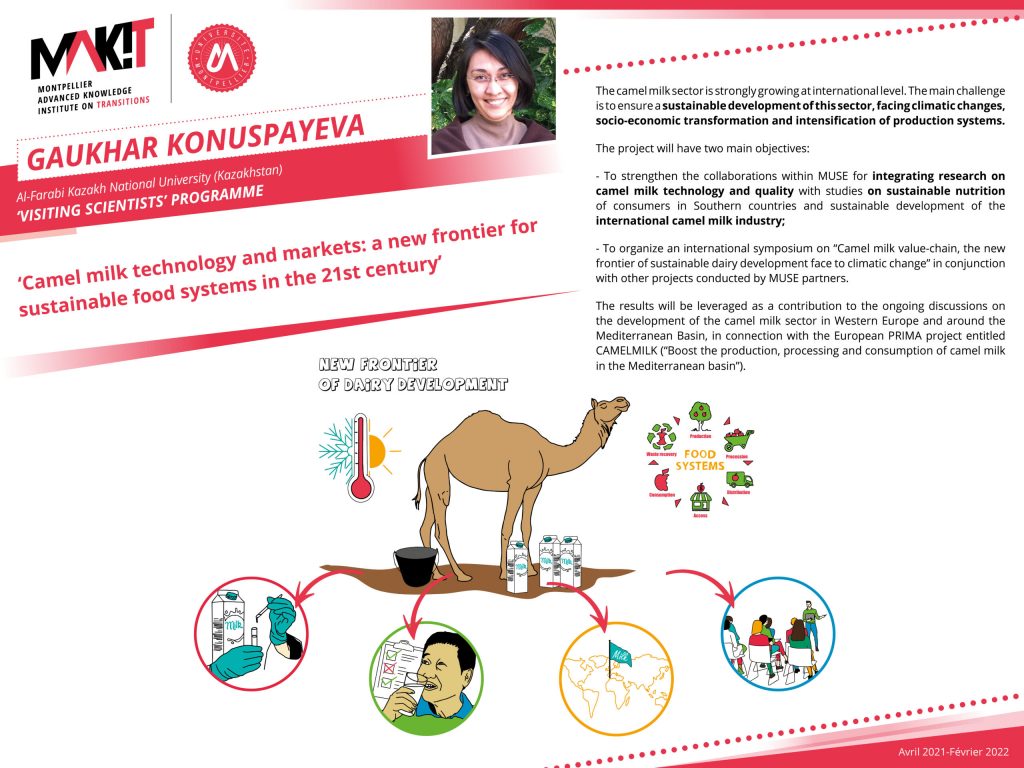Gaukhar Konuspayeva
Professor of food biotechnology at Al-Farabi University, Almaty, Kazakhstan and consultant for the Food and Agriculture Organization (FAO), Gaukhar Konuspayeva is a graduate of the University of Montpellier where she obtained her Ph.D. in Food Sciences and HDR.
Dr. Konuspayeva worked for FAO in Saudi Arabia at the Camel Research Center in Al-jouf (2010-2012), and then the Kharj Center (2012-2015) where she developed extensive work on the composition and processing of camel milk. She then carried out extensive expertise on this subject in Kazakhstan, Morocco and Mauritania with FAO, as well as Tunisia for the private sector. She is also a partner of the EU project CAMELMILK (PRIMA program).
Dr. Konuspayeva participated in numerous international conferences, organizing the 4th international ISOCARD (International Society of Camelid Research and Development) conference at Almaty in 2015.
The camel milk sector is strongly growing at international level. The main challenge is to ensure a sustainable development of this sector, facing climatic changes, socio-economic transformation and intensification of production systems.
The project will have two main objectives:
– To strengthen the collaborations within MUSE for integrating research on camel milk technology (notably processing into cheese and fermented milk) and quality with studies on sustainable nutrition of consumers in Southern countries and sustainable development of the international camel milk industry;
– To organize an international symposium on “Camel milk value-chain, the new frontier of sustainable dairy development face to climatic change” in conjunction with other projects conducted by MUSE partners.
Page 6/28
The MAK’IT program will be leveraged to apply the obtained results to the development of the camel milk sector in Western Europe and around the Mediterranean Basin, in connection with the European PRIMA project entitled CAMELMILK (“Boost the production, processing and consumption of camel milk in the Mediterranean basin”) coordinated by IRTA (Institute of Research on Agrofood Technology).
